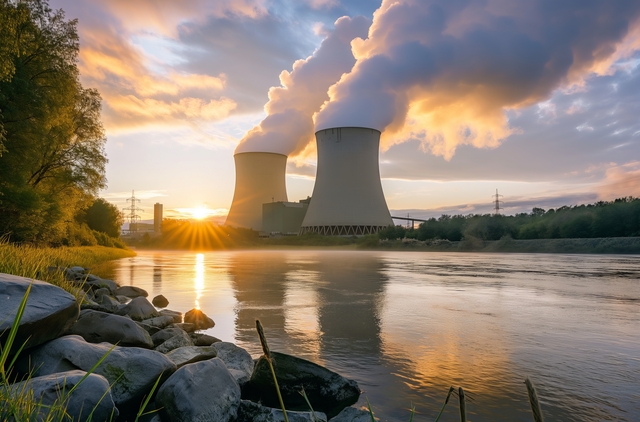India and France have agreed to collaborate on developing small modular nuclear reactors (SMRs), India’s foreign ministry announced after Prime Minister Narendra Modi’s visit to France.
Modi and French President Emmanuel Macron highlighted the significance of nuclear energy in bolstering energy security and transitioning to a low-carbon economy.
India Revises Nuclear Liability Law
The agreement follows India’s recent decision to amend its strict nuclear liability law, which has historically held operators fully accountable for accidents.
The law has been a major roadblock for nuclear projects in India, causing long delays. The upcoming changes aim to encourage foreign investment and facilitate international partnerships in the nuclear sector.
Expanding Global Nuclear Cooperation
During his visit to Washington, Modi is also expected to discuss potential nuclear investments with US firms. India’s foreign ministry confirmed that India and France will jointly develop SMRs and advanced modular reactors for civilian use.
Factories can manufacture these reactors and assemble them on-site. They require less land and infrastructure compared to traditional nuclear reactors.
A New Approach to Nuclear Development
Indian Foreign Secretary Vikram Misri stated that India and France seek to co-design, co-develop, and co-produce these reactors.
He emphasized that the collaborative approach would help overcome the challenges faced in conventional nuclear projects.
Since modular reactor technology is still in its early stages, the partnership will enable both countries to advance their nuclear expertise.
India Shifts Towards Greater International Cooperation
India’s nuclear energy strategy is undergoing a significant transformation. The government, previously known for stringent regulations, is now embracing international collaboration and private sector participation.
Earlier this month, the finance minister set an ambitious target of generating 100GW of nuclear power by 2047. To support this goal, the government has allocated over $2 billion for nuclear research and development, with a focus on developing five indigenous reactors by 2033.
Moving Beyond Stalled Projects
India and France have historically planned to build the world’s largest nuclear plant in Maharashtra. However, the project has faced delays for more than a decade due to India’s nuclear liability law. As reported by bbc.com, the law was introduced in response to concerns over corporate accountability. These concerns grew after the 1984 Bhopal gas tragedy and the 2011 Fukushima disaster.
































